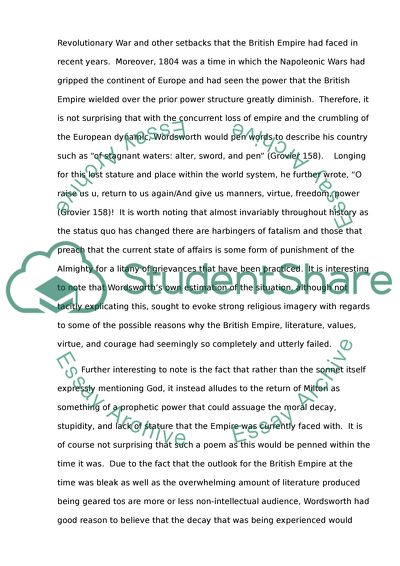Cite this document
(“A detailed analysis on William Wordsworth's poemLondon,1802 Essay”, n.d.)
A detailed analysis on William Wordsworth's poemLondon,1802 Essay. Retrieved from https://studentshare.org/literature/1469799-a-detailed-analysis-on-william-wordsworth-s
A detailed analysis on William Wordsworth's poemLondon,1802 Essay. Retrieved from https://studentshare.org/literature/1469799-a-detailed-analysis-on-william-wordsworth-s
(A Detailed Analysis on William Wordsworth'S poemLondon,1802 Essay)
A Detailed Analysis on William Wordsworth'S poemLondon,1802 Essay. https://studentshare.org/literature/1469799-a-detailed-analysis-on-william-wordsworth-s.
A Detailed Analysis on William Wordsworth'S poemLondon,1802 Essay. https://studentshare.org/literature/1469799-a-detailed-analysis-on-william-wordsworth-s.
“A Detailed Analysis on William Wordsworth'S poemLondon,1802 Essay”, n.d. https://studentshare.org/literature/1469799-a-detailed-analysis-on-william-wordsworth-s.


